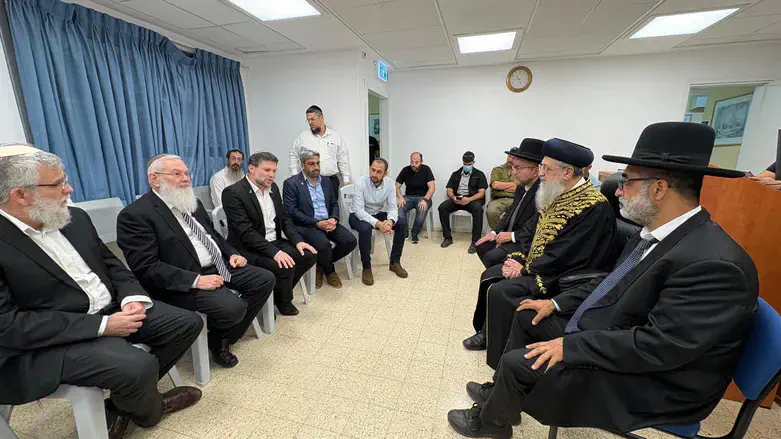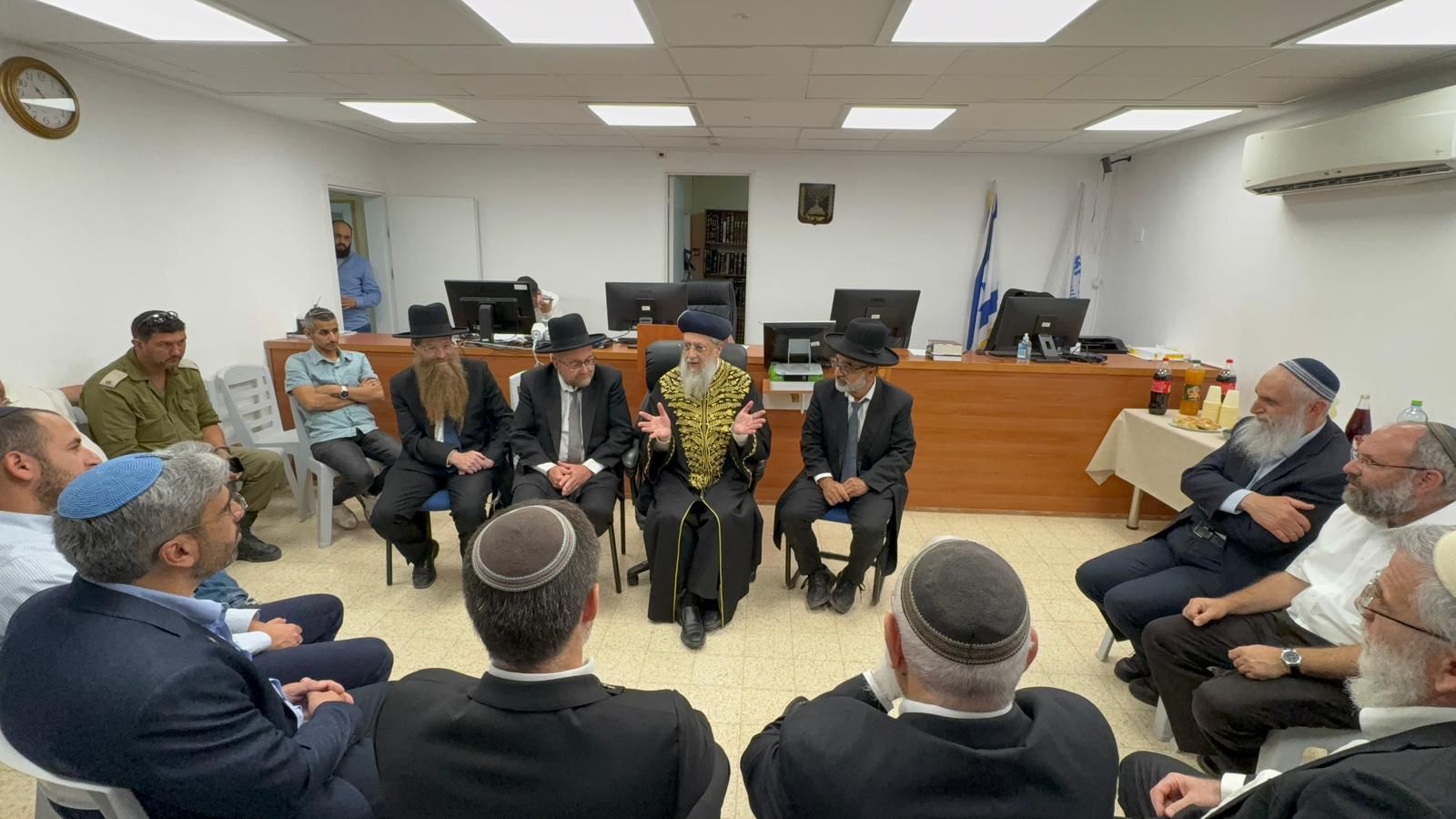
An official status was granted Wednesday to the Rabbinical Court operating in the city of Ariel, making it the first permanent Rabbinical Court in Judea and Samaria.
This marks a significant step in strengthening state institutions in the region. Although the court in Ariel has operated for many years, its location in Samaria meant it was previously considered a branch of the Petah Tikva Rabbinical Court.
Until now, hearings were held only two days a week. Going forward, the court will operate five full days weekly — a move aimed at easing access for local residents.
The official announcement was attended by Sephardic Chief Rabbi of Israel Rabbi David Yosef, Finance Minister Bezalel Smotrich, Director-General of the Rabbinical Courts Rabbi Eli Ben Dahan, Ariel Mayor Yair Chetboun, and YESHA Council Director-General Omer Rahamim, who initiated the move and led the process for official recognition with the Religious Services Ministry and the Chief Rabbinate.
Rabbi Yosef stated, “We came here today to strengthen settlement in the Land of Israel. Establishing the first permanent rabbinical court in Judea and Samaria is a significant step for the half-million residents of Samaria.”
Smotrich added, “‘The appointment of worthy judges is worthwhile to revive Israel and settle them in their land.’ Today we are taking a major step to reinforce our hold on the land and Israeli sovereignty in Judea and Samaria. We will continue to strengthen rabbinical courts and establish more across the region and the entire country.”

Chetboun said, “Ariel continues to lead efforts to mobilize all government services and ministries to operate from the capital of Samaria, the heart of the Land of Israel. Thanks to joint efforts, the court has now been granted official status, enabling broader service for residents.”
Rabbi Ben Dahan shared, “I had the privilege of establishing the court in Ariel nearly thirty years ago with the late Mayor Ron Nachman, and I’m happy to see that we now have the Ariel court operating as a permanent court, five days a week.”
Rahamim concluded, “This is another significant step toward full sovereignty, including in the realm of religious services. Residents of Judea and Samaria deserve the same services as those in Tel Aviv, Jerusalem, or Haifa. Recognizing this court strengthens the status of the settlement movement.”
